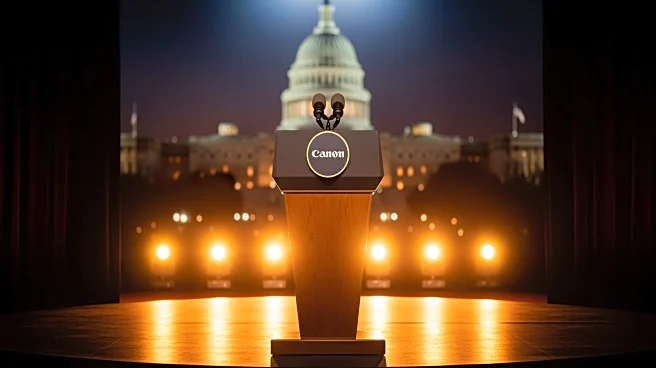What's Happening?
President Trump has issued a stern warning to Hamas, stating that they must disarm or face disarmament by the United States, potentially through violent means. This statement comes in the wake of the recent
exchange of Israeli hostages and Palestinian prisoners, which has heightened tensions in the region. President Trump's remarks reflect a strong stance on U.S. foreign policy regarding the Middle East, emphasizing the need for stability and security. The situation remains delicate, with international observers closely monitoring developments.
Why It's Important?
President Trump's warning to Hamas is significant as it underscores the U.S.'s commitment to maintaining peace and security in the Middle East. The potential for U.S. intervention could have far-reaching implications for regional stability and international relations. It highlights the ongoing challenges in achieving lasting peace between Israel and Palestine, and the role of external powers in influencing outcomes. The statement may also impact U.S. diplomatic relations with other countries involved in Middle Eastern affairs, as well as domestic political discourse on foreign policy.
What's Next?
The international community is likely to respond to President Trump's warning with a mix of concern and calls for diplomatic solutions. Hamas may face increased pressure to comply with disarmament demands, while regional allies and adversaries assess their positions. The U.S. government may engage in further diplomatic efforts to address the situation, potentially involving negotiations or coalition-building. The outcome of these developments could shape future U.S. foreign policy strategies and influence the geopolitical landscape in the Middle East.
Beyond the Headlines
President Trump's statement raises ethical and legal questions about the use of force in international relations. It may prompt discussions on the balance between national security interests and humanitarian considerations. The potential for military intervention also highlights the complexities of international law and the responsibilities of global powers in conflict resolution. Additionally, the situation may influence public opinion on U.S. foreign policy, affecting political dynamics and voter sentiment ahead of upcoming elections.









